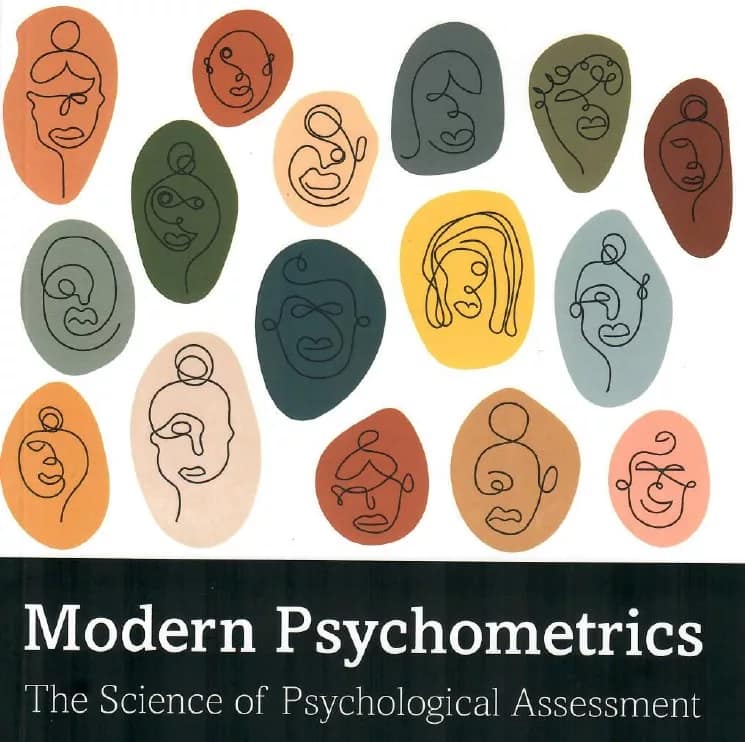
Books
Modern Psychometrics:
The Science of Psychological Assessment (4th Edition)
John Rust, Michal Kosinski, David Stillwell
December 2020 Routledge, UK
November 2024 RenMin University Press, China
A comprehensive introduction to the increased sophistication in psychometric methods and regulation that took place during the late 20th and early 21st centuries, including the many benefits to governments, businesses, and customers.
In this new edition, the authors explore the increasing influence of the internet, wherein everything we do is available for psychometric analysis, often by AI systems operating at scale and in real time. Key controversies, such as privacy and the psychographic microtargeting of online messages, are addressed.
English Edition - available from Routledge
This popular text introduces the reader to all aspects of psychometric assessment, including its history, the construction and administration of traditional tests, and the latest techniques for psychometric assessment online.
Chinese Edition - available from China Renmin University Press
新书上市|约翰·罗斯特教授《现代心理测量(第4版)》
Italian Edition - available from Giunti Psicologia
Misurare la psiche: La psicometria contemporanea
Modern Psychometrics
John Rust, Michal Kosinski, and David Stillwell introduce the reader to the intended and unintended consequences of this new era in psychological assessment. Key controversies, such as privacy and the psychographic microtargeting of online messages, are addressed. Furthermore, this new edition includes brand-new chapters on item response theory, computer adaptive testing, and the psychometric analysis of the digital traces we all leave online.
Modern Psychometrics combines an up-to-date scientific approach with full consideration of the political and ethical issues involved in the implementation of psychometric testing in today’s society. It will be invaluable to both undergraduate and postgraduate students, as well as practitioners who are seeking an introduction to modern psychometric methods.
Summary of Preface to the 4th Edition
It’s been 30 years since the first edition of “Modern Psychometrics” was first published. During this time, the field of psychometrics, which is all about creating and analyzing tests and measurements for psychological traits, has grown considerably. Many ideas that were only possibilities in the early editions have now become real and common practices.
Since the previous edition in 2009, the rise of the internet has changed everything, including how psychometrics is used. For better or worse, our online activities are constantly analyzed by AI to create psychometric profiles. These profiles help companies, political groups, and governments influence us, sometimes not in our best interests. However, this technology also allows for personalized learning and many other innovations and it a big part of the digital economy, providing almost all of the funding for the entire tech industry.
Psychometrics also helps make school exams, job recruitment, and research tools better and more fair. This book aims to explain the science behind psychometrics and offer practical advice for professionals and students in various fields. We talk about important topics like ability and personality tests, and how computers have changed testing. Modern psychometricians have a big role in making sure assessments are fair, and they’re getting involved in important discussions about privacy and the power of corporations and governments.
This edition includes a guide on how to make your own psychometric test, covering everything from planning to validating it to professional standards. We discuss tests for skills, aptitudes, personality, integrity and more, emphasizing the need to understand reliability, validity, standardization, and bias for anyone working with tests.
With this update, we’ve added much more on internet-based testing, such as computer adaptive testing and real-time item generation, which are now more accessible thanks to technology advancements. There’s a high demand for psychometric skills, not just in traditional areas but also in new online applications like personalized health advice and market research.
The creation of this edition was supported by an incredible team at The Psychometrics Centre at the University of Cambridge. Their creativity and hard work have pushed the field of psychometrics forward. We’re grateful to everyone who contributed, including those who’ve moved around the world but continue their important work. Special thanks to Susan Golombok, the original co-author, for her support in making this new edition.
The next edition?
I have been asked about this, and in normal times, new editions of Modern Psychometrics are published every 10 years. But now is not ‘normal times’ – the online world is changing so fast. Hence I have begun anticipating the 5th Edition with occassional chapters. A little odd, you may thhink, but very necessary. Here is the first: